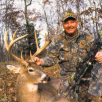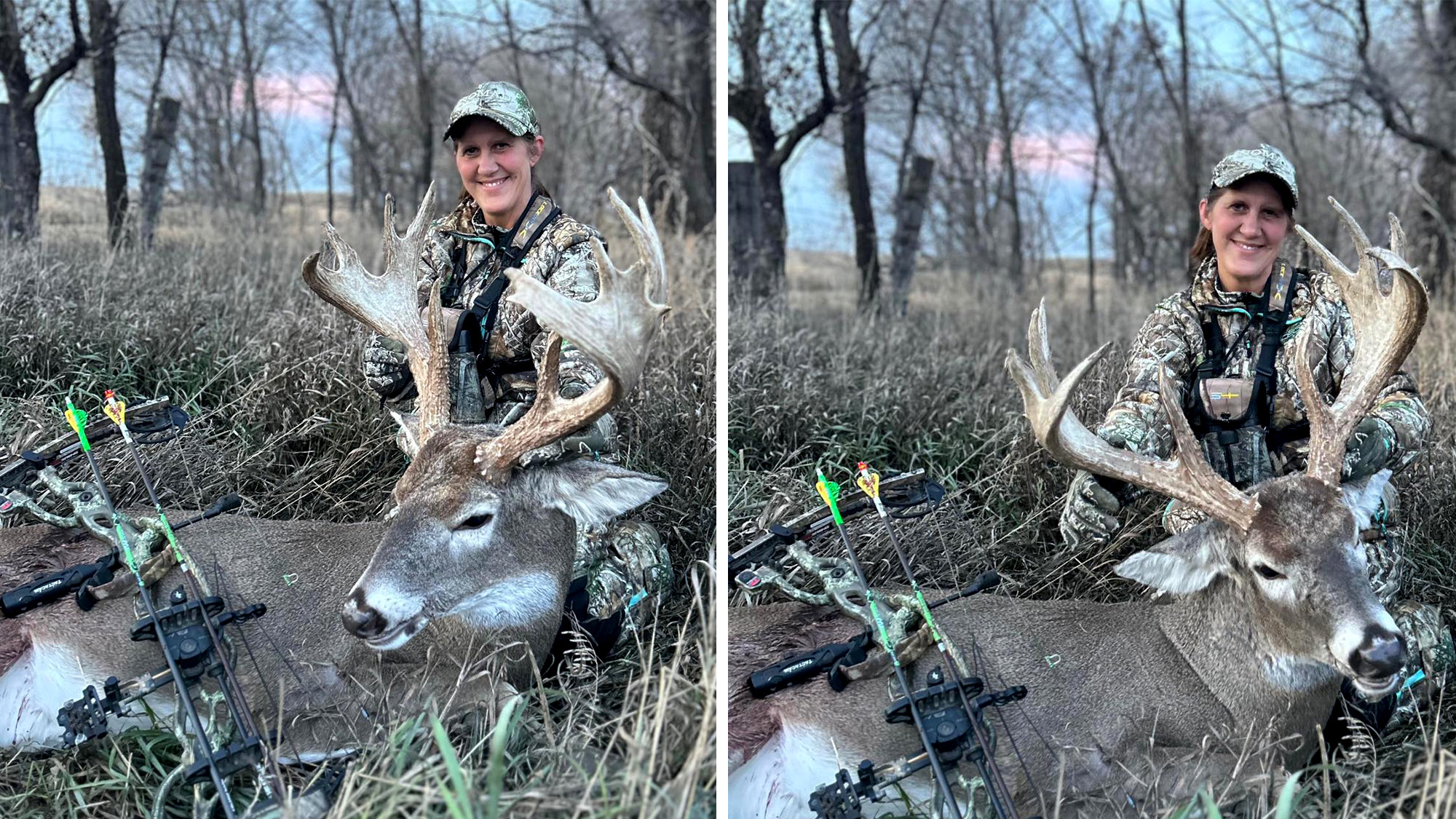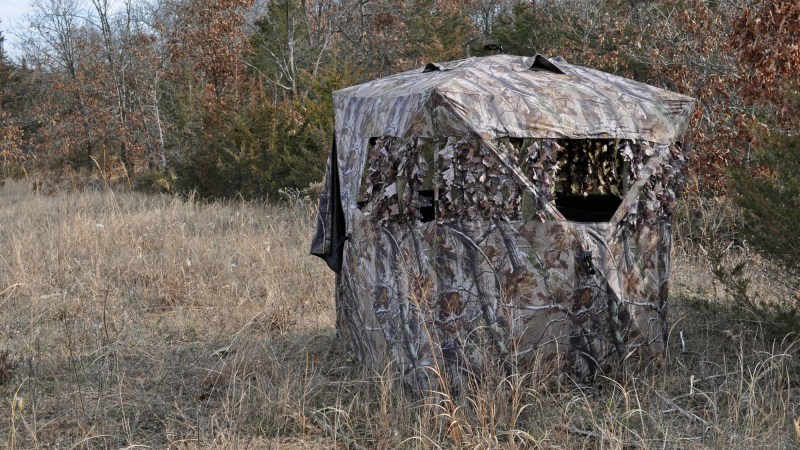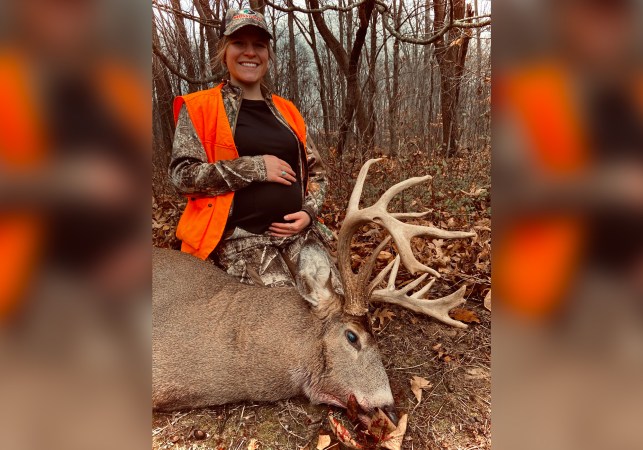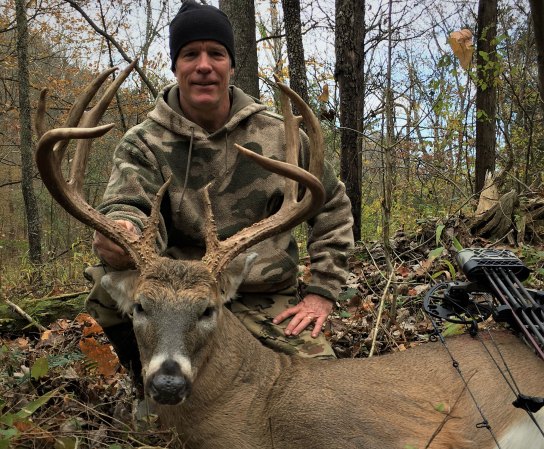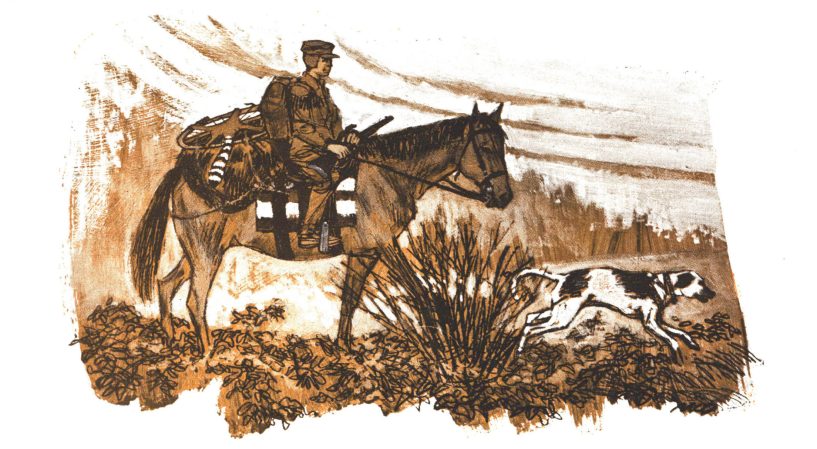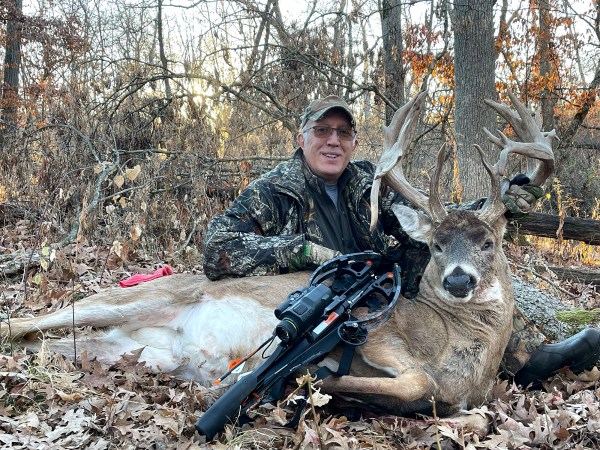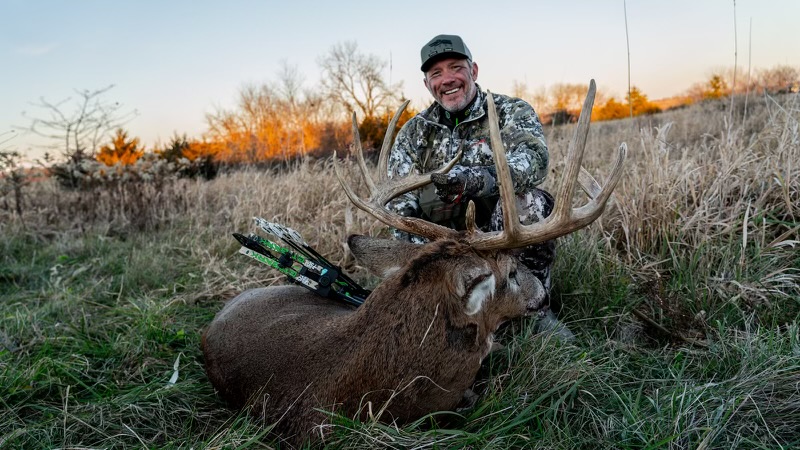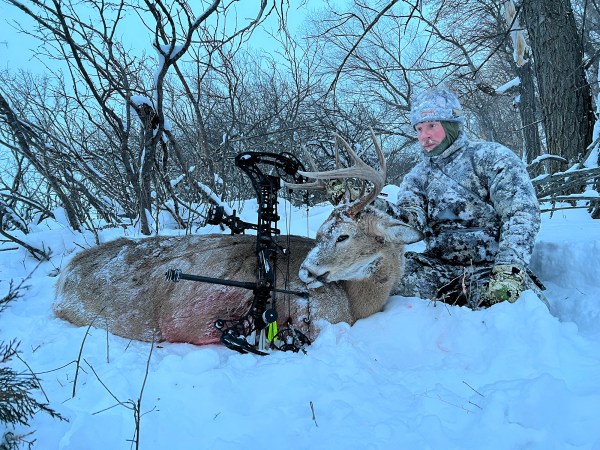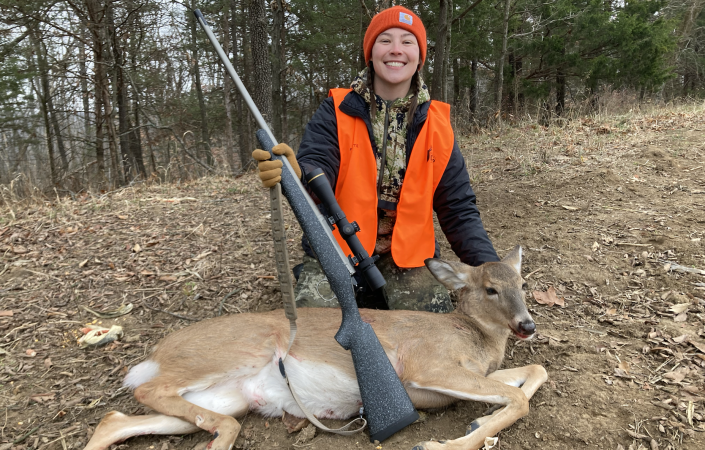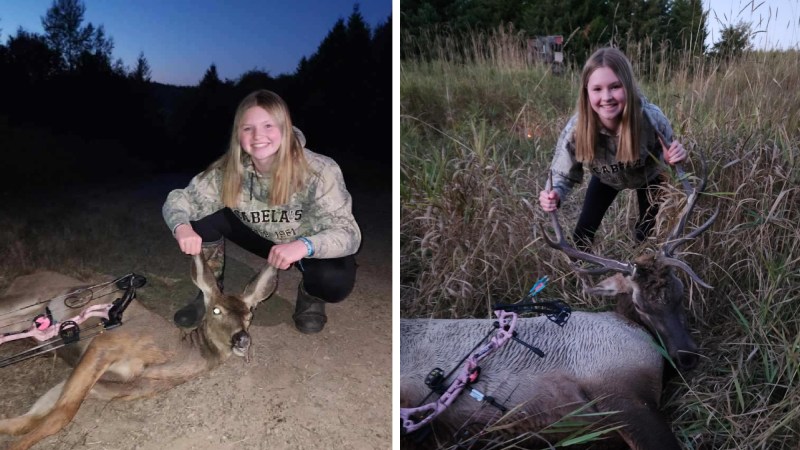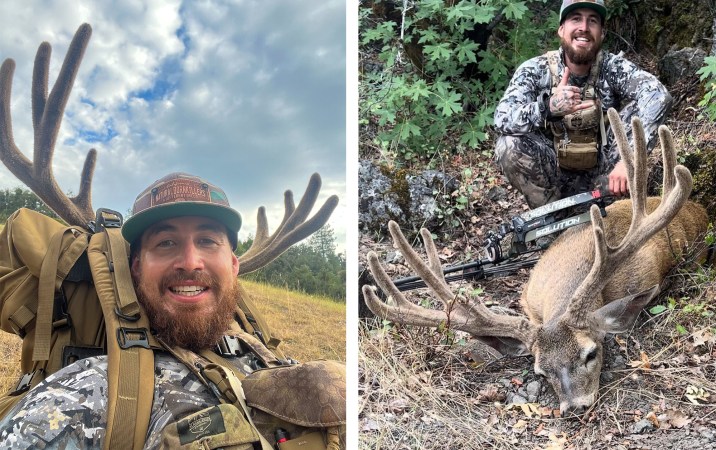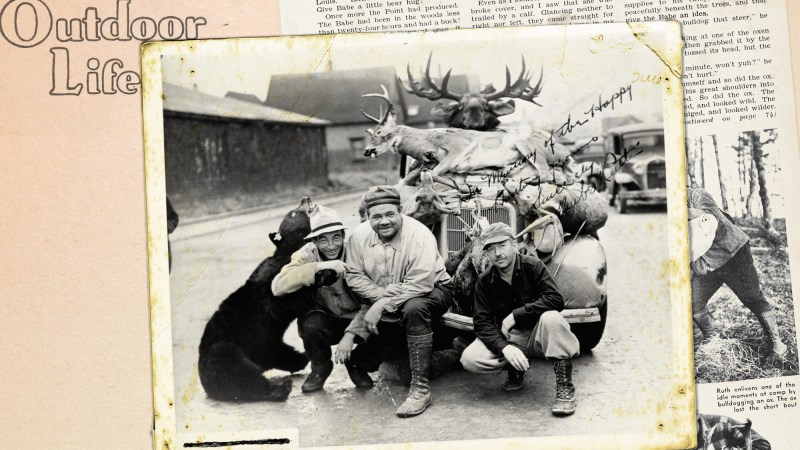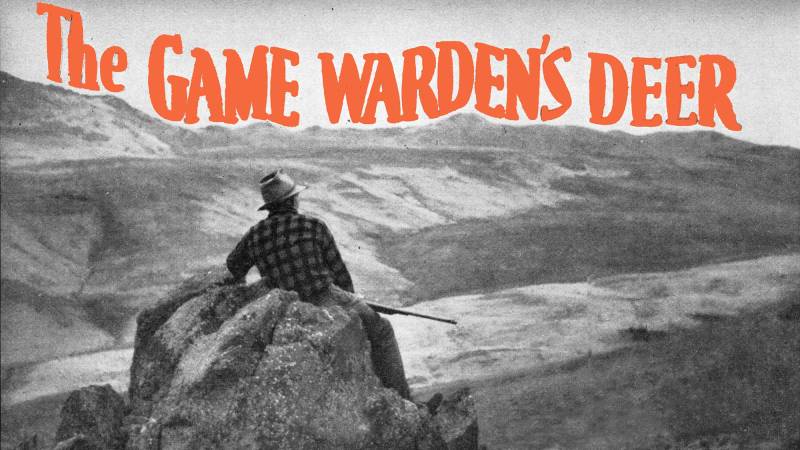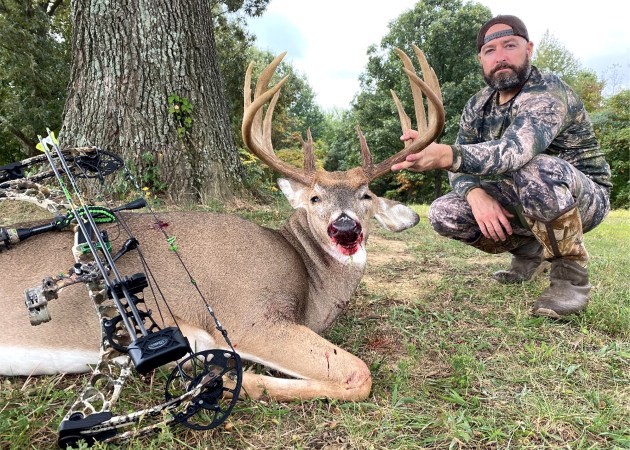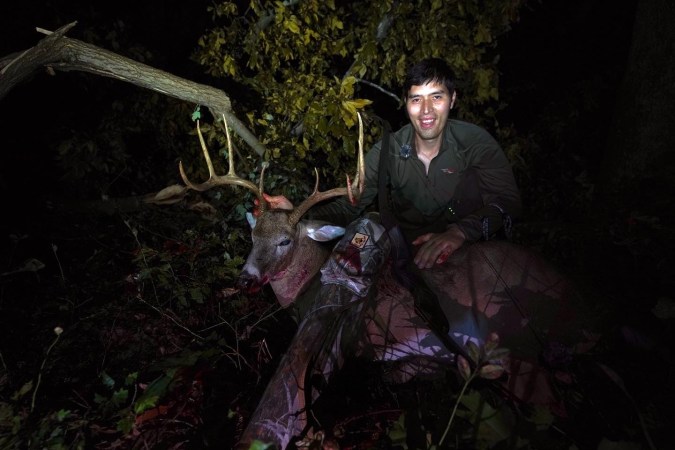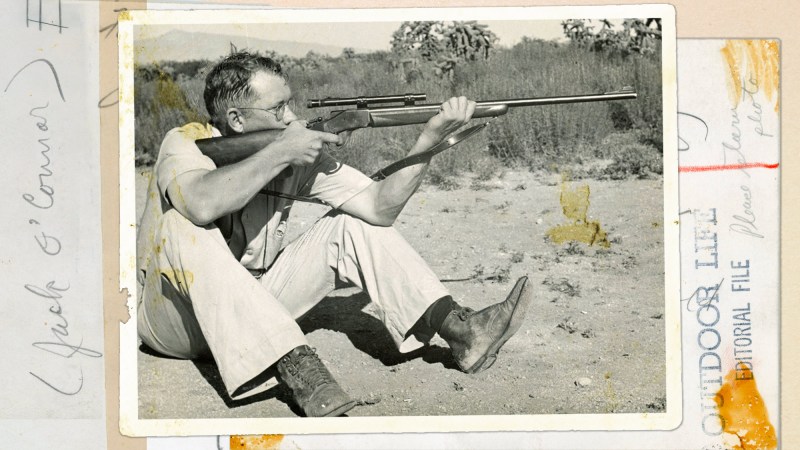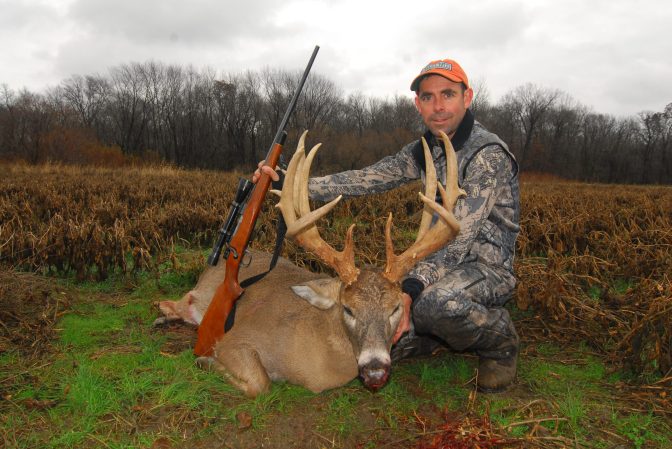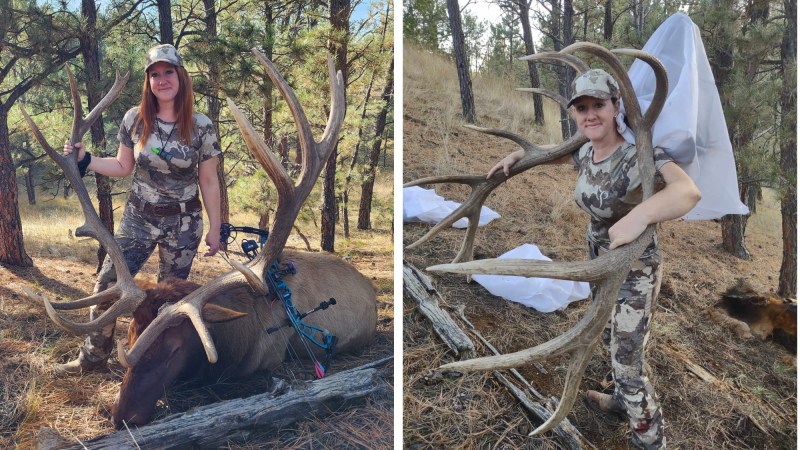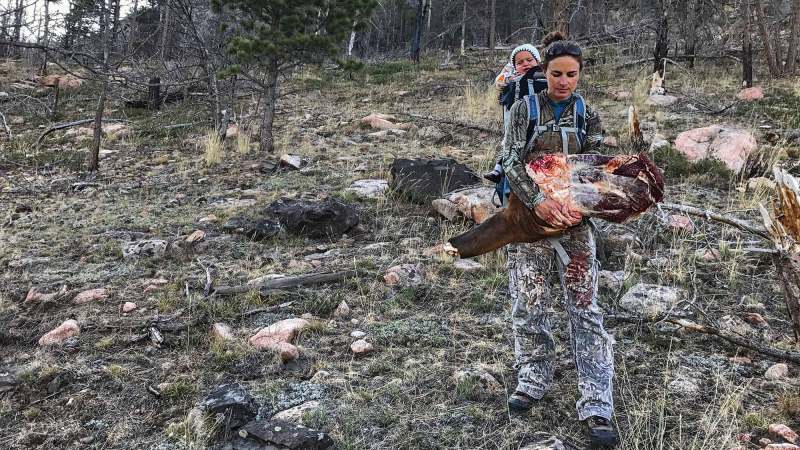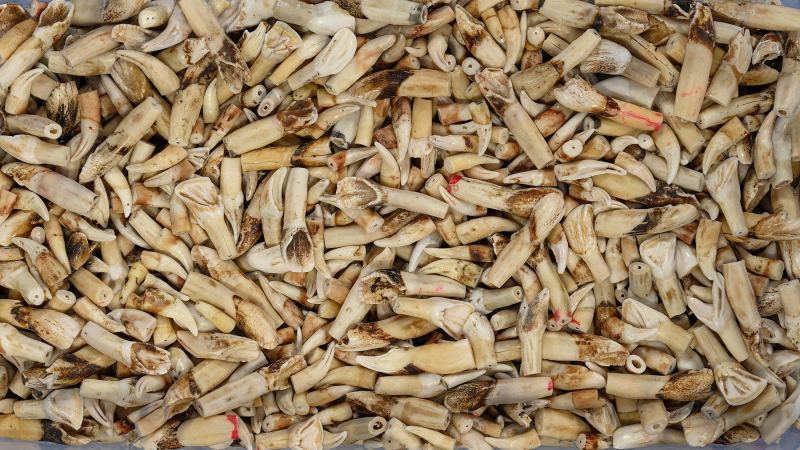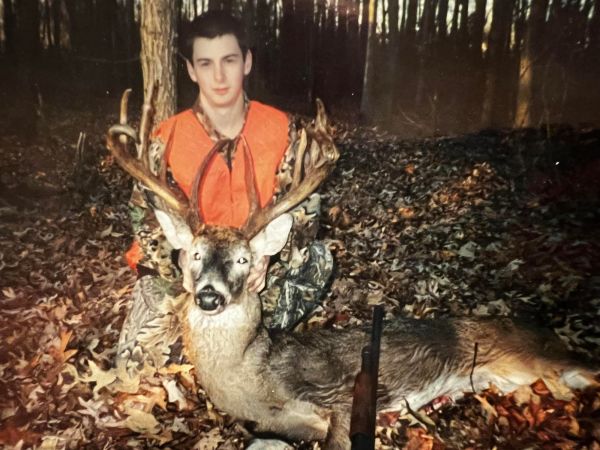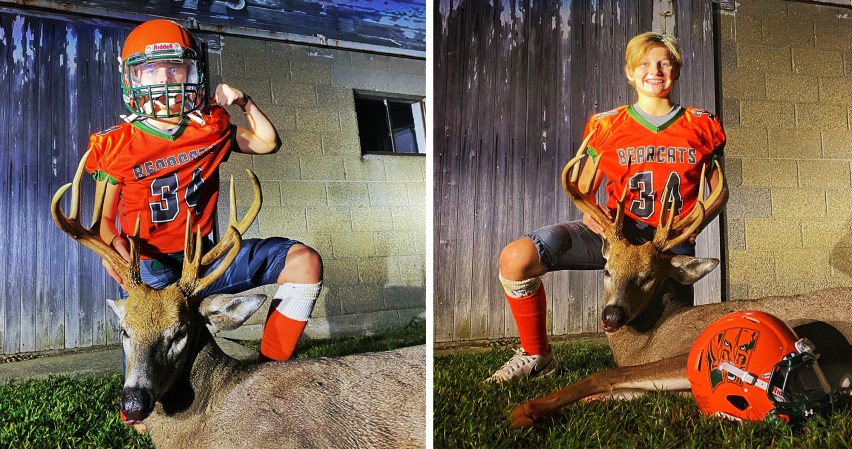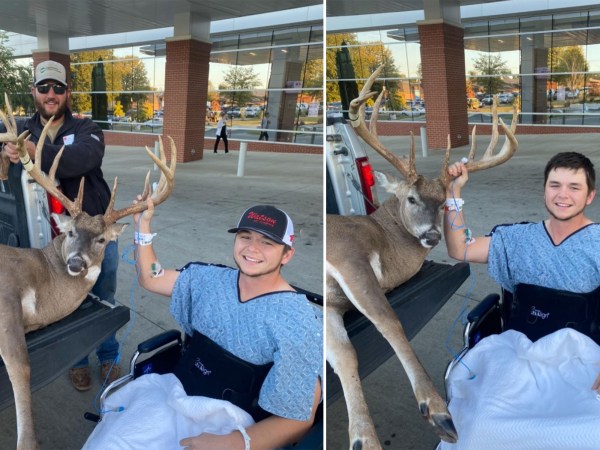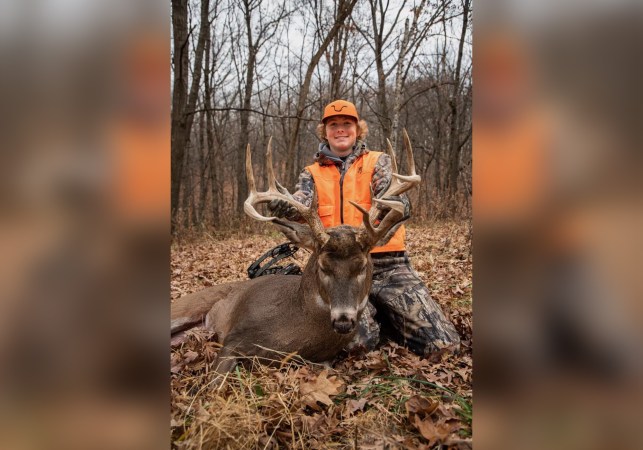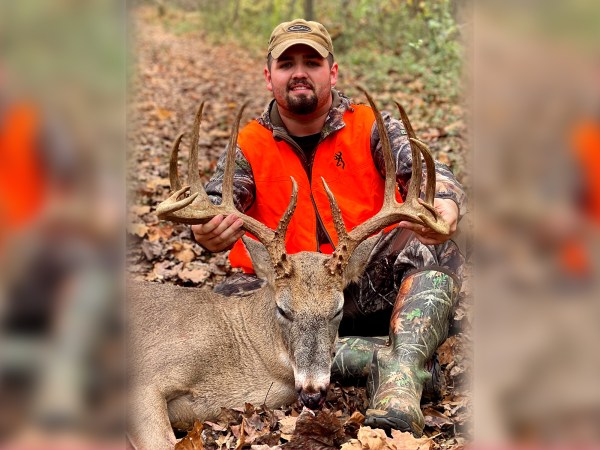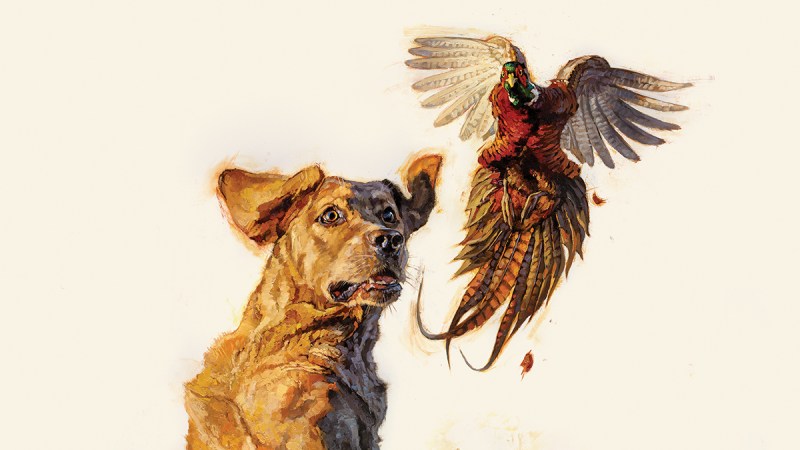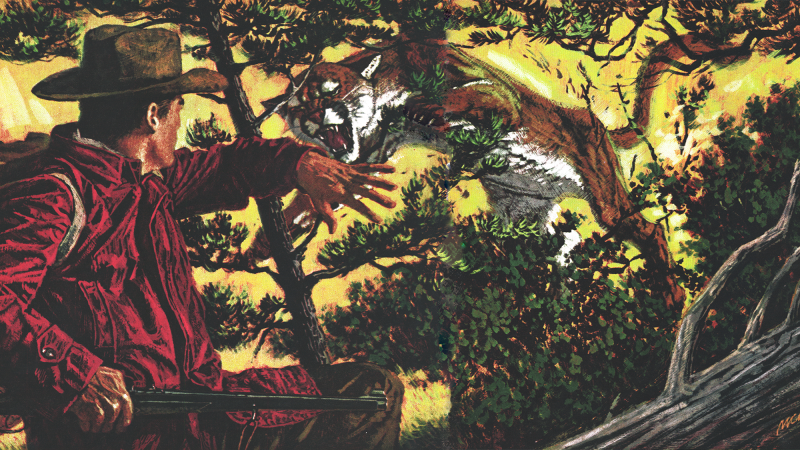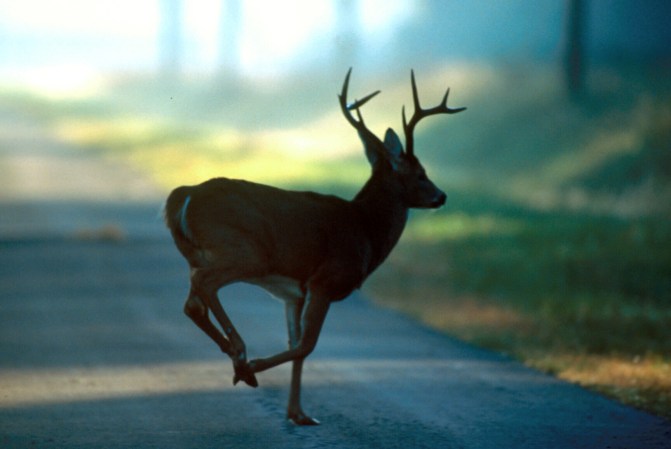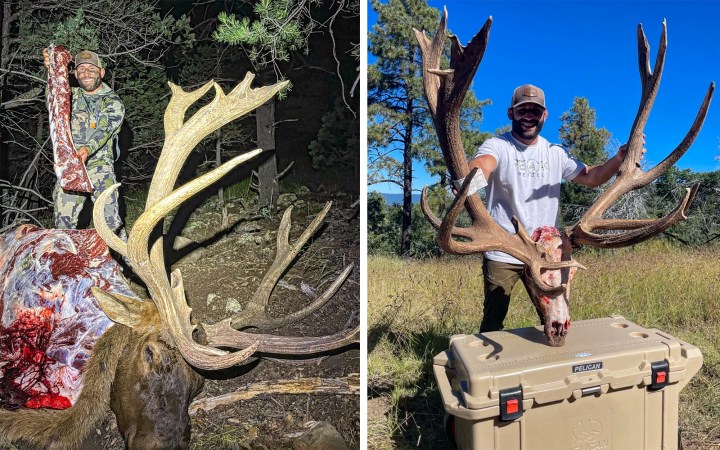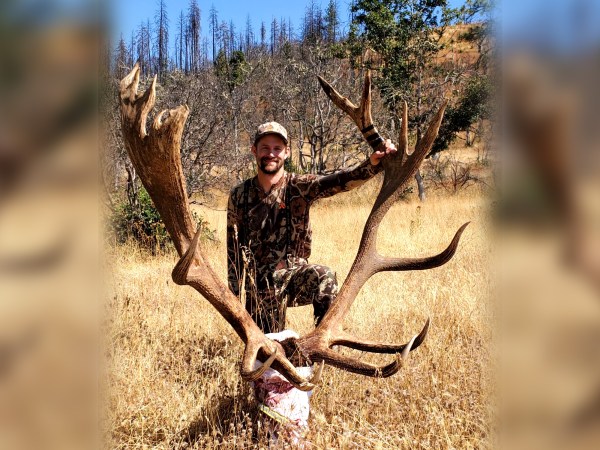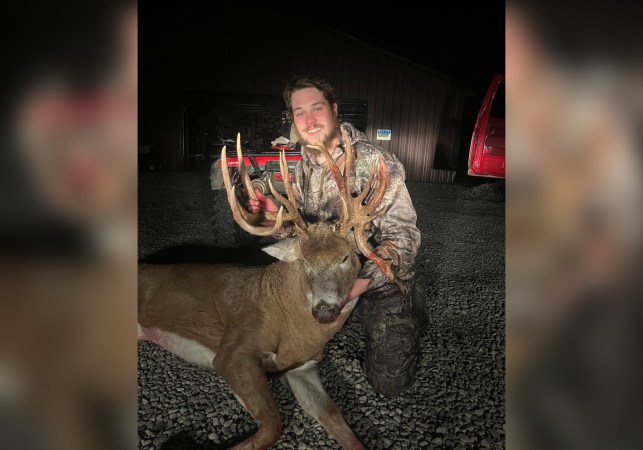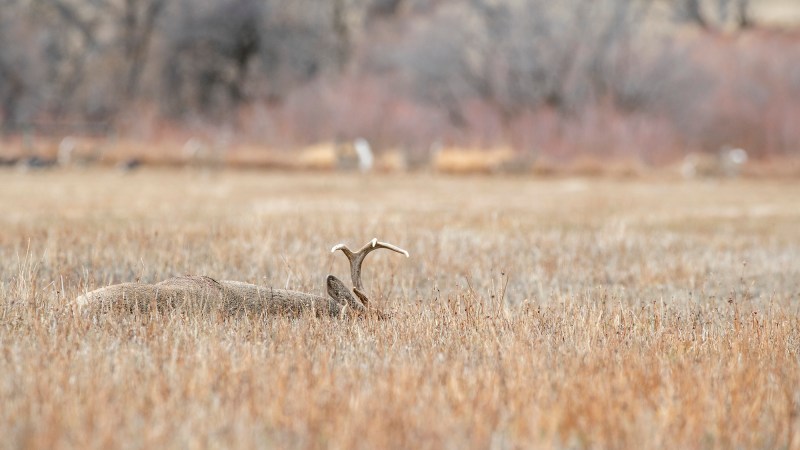It was mid-morning on Nov. 13, and South Dakota bowhunter Shauna Woodward found herself in the heat of the rut. Glassing from one of her favorite spots on the 1,000-acre cattle ranch that she and her husband own in Spink County, she saw bucks chasing does and fighting each other. As she sat and watched the action, she waited patiently for an unusual, palmated whitetail buck she’d nicknamed “Moose” to show itself.
“I was near a grove of cedar trees, with a strong 20 mph wind blowing,” Woodward tells Outdoor Life. “I was glassing the trees, looking for the palmated buck. I couldn’t move around much because there were deer everywhere—bucks fighting, snort-wheezing, crashing the brush.”
Woodward had first seen the buck on the property in 2021. It was 4×4 whitetail with an unusual rack configuration, but it was clearly a young deer and she passed on it. By the time the 2022 deer season started, a record drought had affected many of the bucks in the region, and Woodward explains that their antlers were brittle and breaking off.
“We had cell camera [photos] of the deer, and almost all of them had busted racks, including Moose. So, we shot no bucks on our farm in 2022,” she says. “This year, though, Moose just exploded. He put on a lot of mass and his palmated antlers were much larger.”
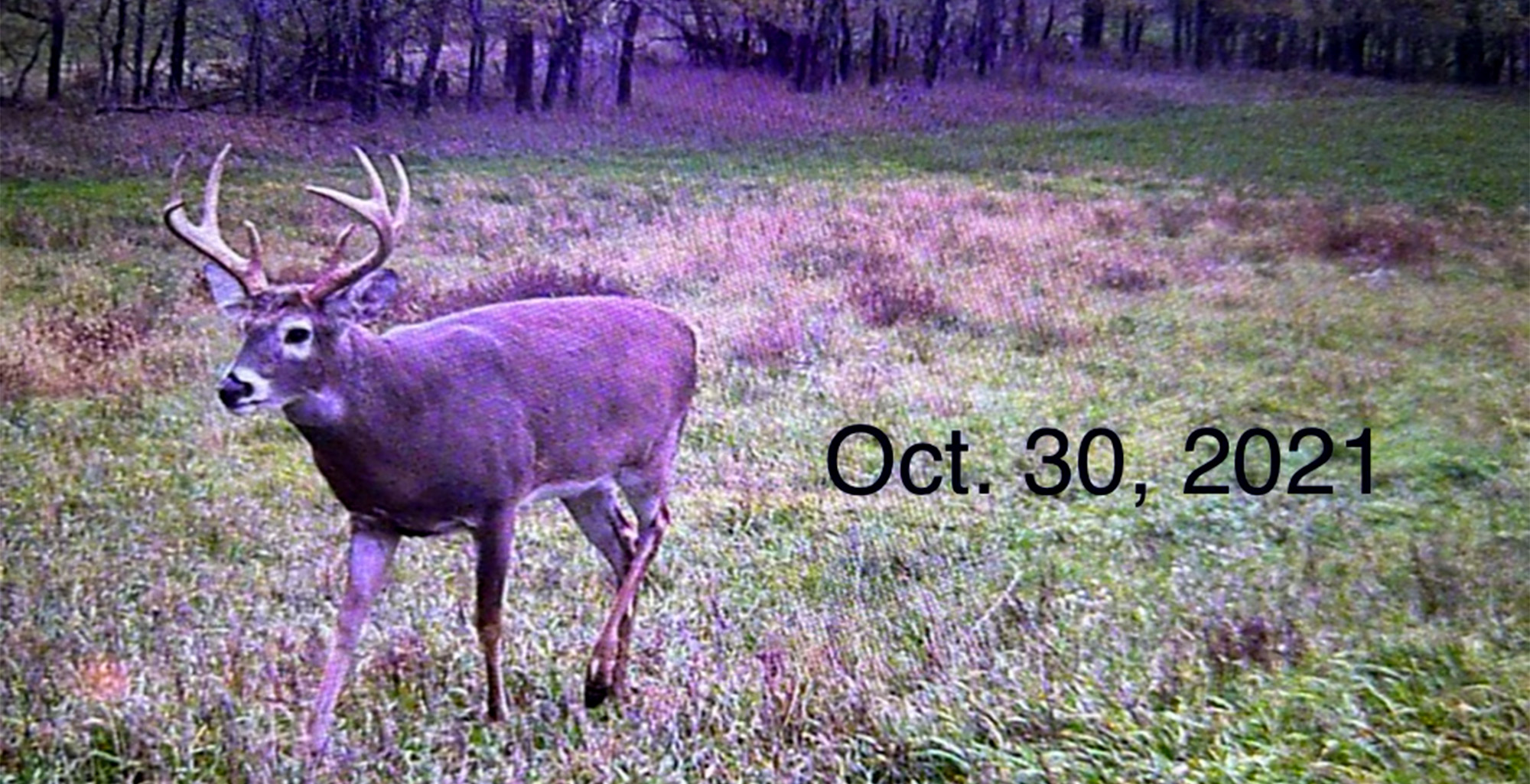
Courtesy Shauna Woodward
By Nov. 13, with the rut in high gear, Woodward was searching hard for Moose as she sat on the ground and glassed near the cedar grove.
“A small 4-point buck stepped out of the cover just 15 yards from me that morning,” she recalls. “He didn’t spook because he was rut-crazy. Then he just headed off to another pasture near the cedar trees.”
A few minutes later she spotted antler tips coming over a hill, and she recognized Moose from around 50 yards away. All she could see was the deer’s head and rack, so she had no chance for a shot with her bow.
“Moose was very smart, and mostly nocturnal,” she explains. “He saw the 4-pointer walk away, and he sensed something wasn’t right. He wasn’t spooked. But he followed the 4-pointer into the cedar trees that were about 300 yards away.”
Looking through her binoculars, Woodward watched the bucks running does through the cedars. She knew they had an elevated blind near the edge of the cedars, so she picked up and moved slowly and carefully to that spot. Woodward eased into the blind around 10 a.m., and she was now about 200 yards from where she last saw the two bucks chasing does.
Read Next: Hunter Accidentally Blows Up Blind, Then Tags Palmated Buck
“Through my binoculars I spotted a doe pop out of the trees, moving toward me,” she recalls. “Moose came out following the doe, then ducked back into the cedars. There were other bucks there, too, raising cane and snort-wheezing. They all were moving slowly towards me in the blind but hidden in the cedars.”
She listened to the deer that were in the heavy cover only 40 yards from her blind. Then the 4-pointer ran out of the cover, followed by a young deer.
“That’s when the doe ran out and passed me at 20 yards,” Woodward says. “I couldn’t see well except through a tight shooting lane. But I figured Moose was going to be behind the doe. So I drew my Hoyt 50-pound bow, and watched the opening for Moose.
“I heard him grunt, and then he appeared walking fast after the doe. I let him reach the opening at 20 yards, led him a bit, and shot.”

Courtesy Shauna Woodward
The arrow hit the buck a bit farther back than Shauna wanted, but it passed completely through the deer. After quietly slipping out of the blind, she checked her arrow and headed home to wait for Moose to expire.
“I love the archery tradition so deeply and want only the quickest, best bow shot to be made,” she says. “I knew the arrow wasn’t perfect, so I waited a few hours to return to the spot with [my husband] Richard to look for Moose.”
Woodward came back around 2 p.m. that day and found a good blood trail. They tracked slowly and carefully to avoid bumping Moose. Two hours later, she found the buck dead only 80 yards from where it was hit.
Read Next: Bowhunting in -30 Wind Chill on the Frozen North Dakota Prairie
Woodward says Moose was looking a little ragged from the rut and only weighed an estimated 175 pounds. The buck’s unusual palmated rack was still in tremendous shape, though, with at least a dozen points. The estimated 6.5-year-old deer hasn’t been scored yet. A taxidermist who is doing a shoulder mount will eventually take the measurements, but Woodward says the numbers aren’t that important to her.
“I’m just glad to finally put my hands on Moose,” she says. “It’s a culmination of a lot of work and expense to grow good bucks into great bucks. And it’s about passing on the ethical hunting tradition to our kids and grandkids.”
